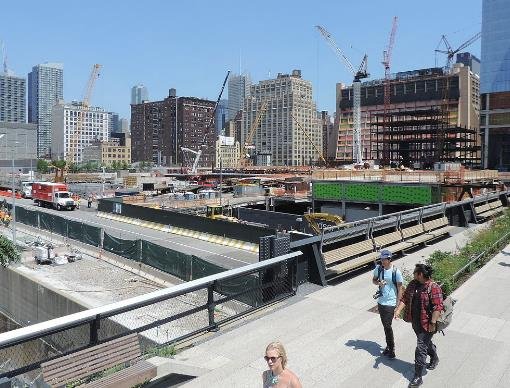The ambitious plan to bring a casino to Hudson Yards is facing a significant hurdle. Manhattan Borough President Mark Levine has come out against the rezoning proposal, a crucial step for the project to move forward. His stance adds another layer of uncertainty to Wynn Resorts and Related Companies’ bid, which is one of 11 competing for three coveted downstate casino licenses in New York.
Housing Concerns Take Center Stage
Levine’s rejection isn’t about the casino itself but rather the lack of housing in the proposal. He pointed to a 2009 agreement under which Related Companies had committed to building between 3,454 and 5,700 residential units in the Western Rail Yards. The current $12 billion plan, however, only includes 1,500 apartments, with just 324 designated as affordable housing.
For a borough grappling with a rental vacancy rate below 2% and average rents nearing $5,000 a month, the numbers just don’t add up for Levine. “There is no getting around the fact that we must create more housing, including affordable housing, to meet the need we see across the city,” he said.
One glaring issue is the expensive infrastructure cost. The site sits atop an active rail yard, meaning a massive $2 billion platform must be built before any development can take place. Related Companies argues that without the casino, the costs make it financially unfeasible to construct additional housing.

Developers Defend the Proposal
Despite the pushback, Related and Wynn remain committed to the project. Natalie Ravits, a spokeswoman for Related, said the company has already made four modifications and engaged with local community groups in 10 meetings to address concerns.
“The site cannot be developed without first paying for the $2 billion platform over the rail yards, and unfortunately, it is simply not viable to pay for the platform with housing,” Ravits explained.
Developers have emphasized the economic benefits of the casino, including:
- 5,000 permanent union jobs
- 35,000 construction jobs
- Increased tax revenue for the city
Still, that argument hasn’t convinced everyone.
Political and Community Opposition Grows
Levine’s decision doesn’t carry legal weight, but it could significantly influence the final rezoning decision, which lies with the New York City Council. His opinion also matters in another critical way—he appoints one of six members to a community board that will cast a binding vote on the casino proposal this summer.
For the project to move forward, at least four of the six board members must approve it. If Levine appoints someone opposed to the plan, Wynn and Related would need to win over four of the remaining five members—a tough challenge.
The project is already facing headwinds:
- A non-binding community board vote last month came out against it.
- Friends of the High Line, an advocacy group, opposes the plan, citing concerns about obstructed views and reduced sunlight.
Levine’s opposition adds another powerful voice to that resistance.
Other Casino Bids Also Facing Challenges
The Hudson Yards bid isn’t the only one encountering difficulties. Several other casino proposals in New York City are running into similar zoning and political hurdles.
| Location | Developer(s) | Key Challenge |
|---|---|---|
| Coney Island | Thor Equities & Partners | Community opposition |
| Bronx | Bally’s Corporation | Zoning restrictions |
| Queens | Mets owner Steve Cohen | Local government concerns |
As the battle for three casino licenses heats up, the road ahead remains uncertain for all bidders. For now, Hudson Yards developers must find a way to address mounting concerns—or risk seeing their billion-dollar vision fade.
Leave a Reply